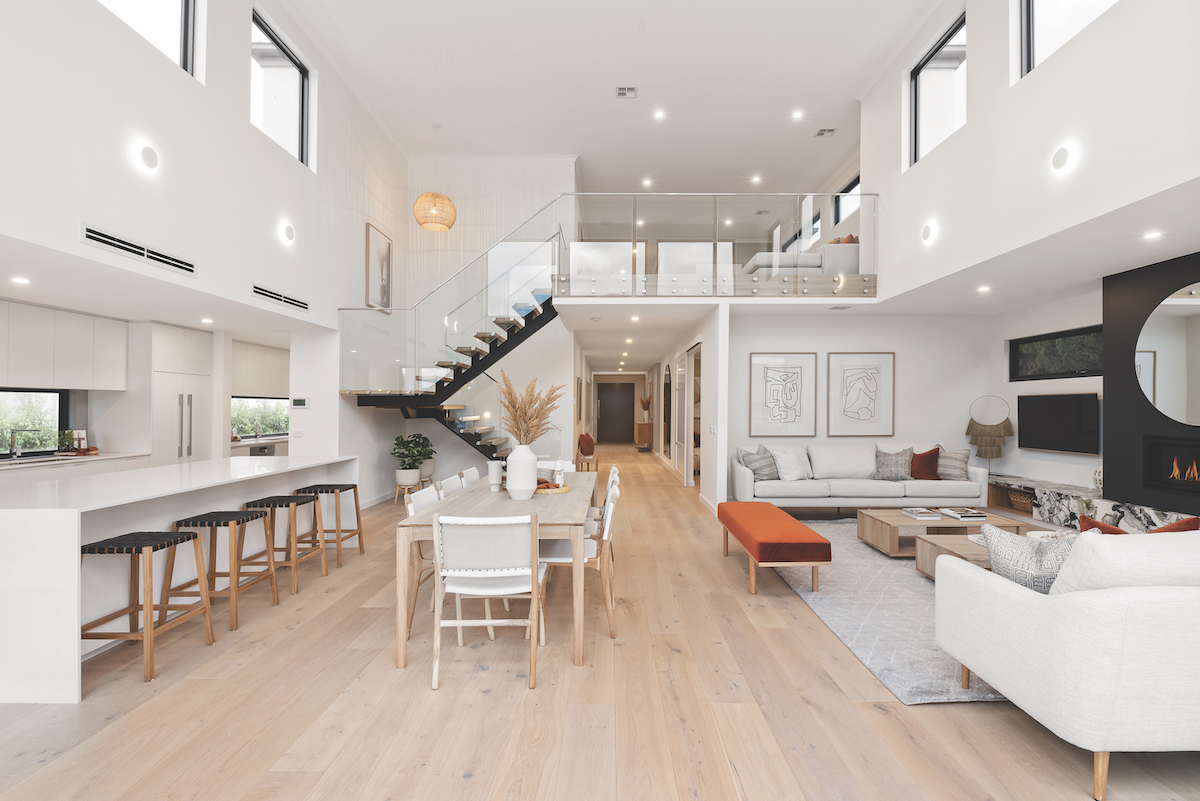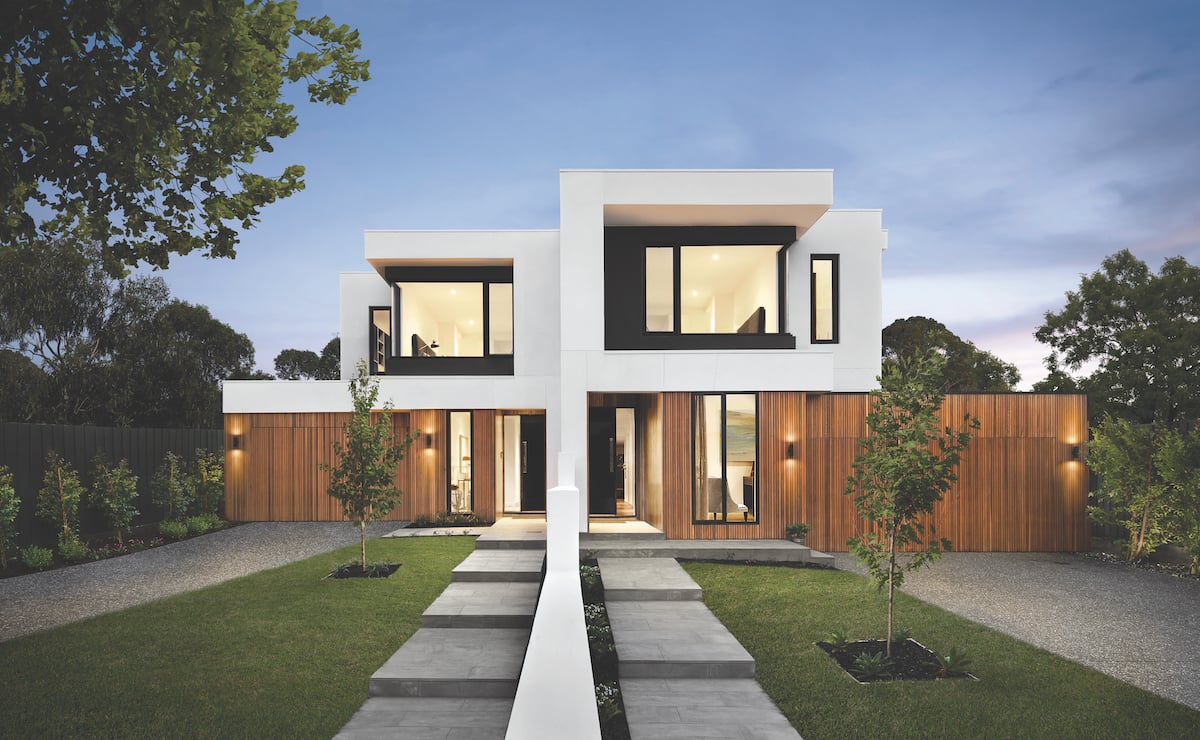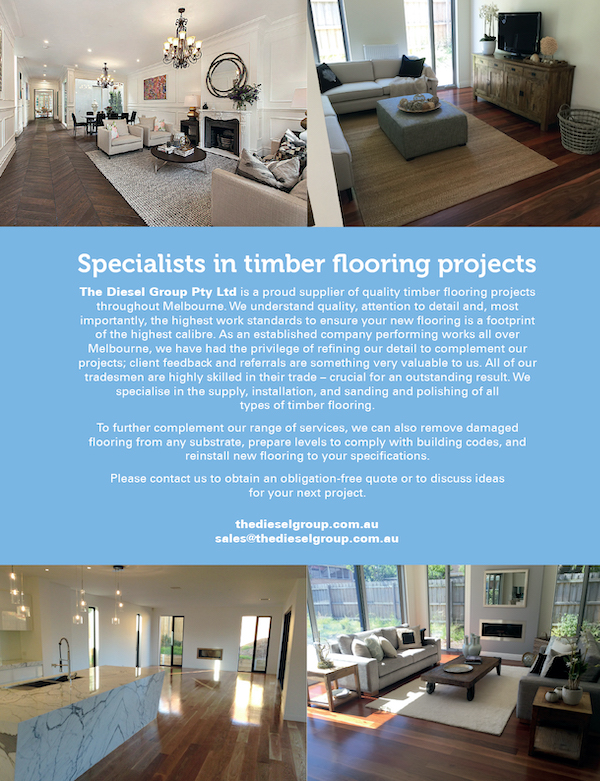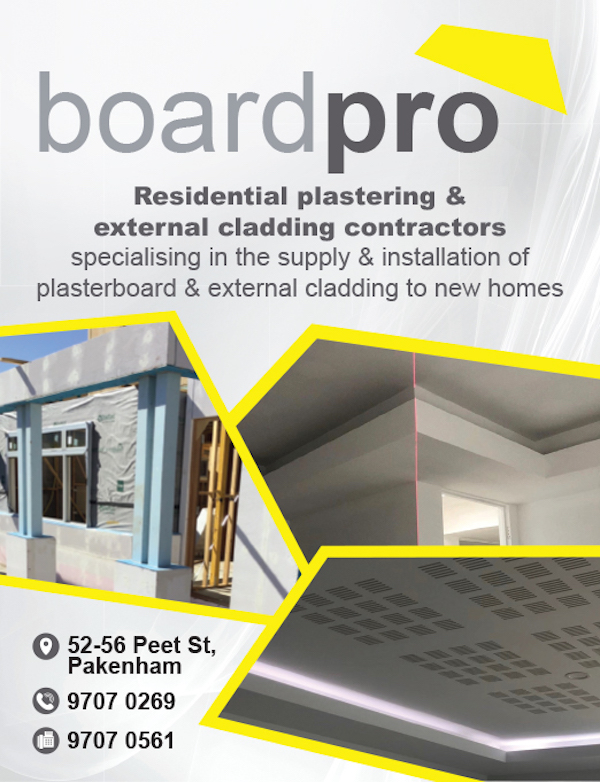With less than a decade in business, Carter Grange Homes could be considered a neophyte in the construction industry, but it’s a company grounded in its directors’ varied personal experiences and their long view of the sometimes capricious world of home building.

Carter Grange Homes also fits into a construction niche that suits their particular skills neatly, by integrating bespoke design flair with budget considerations. It’s a middle ground that satisfies both construction company and inquisitive, informed clients.
“Half our point of difference is being able to provide design flexibility but at a reasonable price point – it’s affordable custom designs. We really sit between the volume builders who have their set designs, with efficiencies and pricing through their volumes, and the specialist builders who build architect-designed homes. We try to give that design flexibility to clients between those two sectors,” David explains.
“We build single dwellings and dual occupancies. We can do up to three on a site, but dual occupancies are the flavour of the month here. A lot of our work is knockdown and rebuilding areas built out in the 1950s and 1960s in suburban Melbourne.”
The company was formed just nine years ago, but it has grown incrementally to now include a staff of 90. While winning contracts is an obvious sign of success, David points to cementing the company’s solid reputation in the industry as a milestone in the company’s development.
“We started the business from scratch, so getting our brand recognised took us a couple of years. Combining design flexibility with the efficiency of the whole process and pricing probably took us a couple more years. A second milestone was going into dual occupancy. I think there are very few builders doing volumes of dual occupancies because it’s a difficult business and has a long lead time. I think being recognised as a leading builder of dual occupancies in Melbourne is a highlight for us.”
The company has spread its wings from its south-east Melbourne origins to the east and inner north suburbs. The reason for a contained footprint is simple, says David – those are the areas where the company can operate in a controlled and quality-conscious way.
“We don’t want to expand too quickly and into too many areas where we can’t deliver that quality,” he says. “We need to be able to supervise it effectively, and we need a certain volume in an area to make it efficient. The other criterion is being able to guarantee that you’ve got good trades in a particular area as well.”
The implicit trust that construction companies need in their suppliers pressures directors to build solid relationships that can weather disruption. The construction industry’s very nature necessitates a mosaic of reliable suppliers who can work together seamlessly in providing materials and labour.

Fortunately, Carter Grange started on the right foot with relationships made and tested before it hung out its shingle. “We were lucky,” says David.
“One of my fellow directors came out of purchasing for another builder, so we had a lot of those relationships when we started. Although we were a startup, they showed considerable trust and faith in us, and we had very good relationships from day one. I think that’s helped us a lot. It’s difficult because you need a period of time to build confidence in them and get them used to your processes and the way you build.
“Boardpro is an interesting case in point, because when we first started we had very strong relationships with CSR and they provided great support to us. Boardpro was aligned with CSR. We wanted to do some things that were different – like plaster reveals, where windows and doors don’t have architraves, and you don’t have skirting boards as such. With Boardpro, we were able to develop that architectural look – they worked closely with us from day one, and they’re still with us, going strong today.
“Rohan Forrest, our Construction and Purchasing Director, was able to source MCG Windows through contacts. Ours is an ongoing relationship that’s been cemented further by some charity work that we and MCG Windows do for Challenge Kids for Cancer. We’ve been raising money for Challenge on an annual basis for the past six or seven years. As it happens, Michael Timms, the owner of MCG Windows, had been raising funds as well for Challenge. It was fortuitous for both of us to come together as a supplier and purchaser, and together we built a retreat at Healesville for Challenge.
“Rohan also found Diesel Group when he was looking for a timber supplier for a particular customer with unusual requests. Diesel has been a regular and very supportive supplier of our floors for a number of years now,” David recalls.
Building trends come and go, but the advent of TV renovation and building shows has opened a Pandora’s box of design ideas for his customers, says David. The result is that it’s incumbent on builders to provide those ideas or they’ll lose business.
“TV shows like The Block and Grand Designs have opened people’s eyes to the sorts of things they can have in their house. The challenge for us is to be able to provide those products or designs, and being able to fit them in a timely way with the required quality,” he says with a smile.
That challenge is, in some respects, an opportunity as well, though, and can steer the company down new paths. “I think most challenges are opportunities, aren’t they?” he says. “They turn out to be that way. If you nail the challenge, it becomes a big positive for you. Like polished concrete floors – that was something not many people did, and probably none of the volume guys do. For us, it’s doing basements – ideas that don’t necessarily become mainstream, but for a reasonable number of your clients you need to be able to do it.”
“I think most challenges are opportunities, aren’t they? They turn out to be that way.”
Those irregular client requests drove Carter Grange Homes to become heavily involved in design and drafting. The company has several internal designers, but it also has access to external designers and drafting resources.
“It’s a significant portion of our business. We’re always looking at what’s coming from overseas, and how it will apply to our particular environment – something in the north might not suit how we build down here. You’ve always got to be looking at trends and where things are going.”

Keeping on trend means counting on workers to have the skills to make new ideas work for customers. It’s a constant search, says David, finding tradies who can do the work at a finish quality that they and their clients expect. Carter Grange builds frames piece by piece, whereas volume builders use prefabricated frames. Young people learning their trades don’t necessarily have the experience to build that way anymore, according to David.
“We try to educate them into our business. We’re better to get a younger, less experienced person whom we can train rather than someone who has ingrained ideas and is less flexible in how they think things should be done. We’re trying to find good young people who will fit within our culture.”
“We’re trying to find good young people who will fit within our culture.”
At the head of the company are three directors with very different personalities, but David considers them a good mix. Partly because of the disparate personalities, the business is very informal, and all staff have ready access to the three directors.
“I’d describe it as very much a family business,” he suggests. “While we do have a number of family members working in the business, we try to treat employees as though they are also part of the family.
“The directors have time set aside for discussion. That’s very important to us, and we find it best to do that outside the office. We make it a habit to have breakfast every Tuesday morning, away from the office, which gives us an opportunity to talk about whatever is going on, and we find it a good way to clear the air of issues that have come up. Because we are very different, our strengths complement each other,” David adds.
That’s a bonus in a notoriously volatile industry like building and construction. Their different perspectives bring fresh ideas to meet business challenges and make tough decisions.
“The building industry goes through booms and busts. Unfortunately, it’s just the nature of the business. It’s subject to people’s confidence, how the economy’s going, access to finance – all those things that are outside of an individual’s control, and definitely outside of our control. It will continue to go through those cycles, although we’d love it to be steadier. You just have to be able to manage the business in a way that accommodates those ups and downs. We, with our team, are very fortunate in that respect.”
Proudly supported by:





